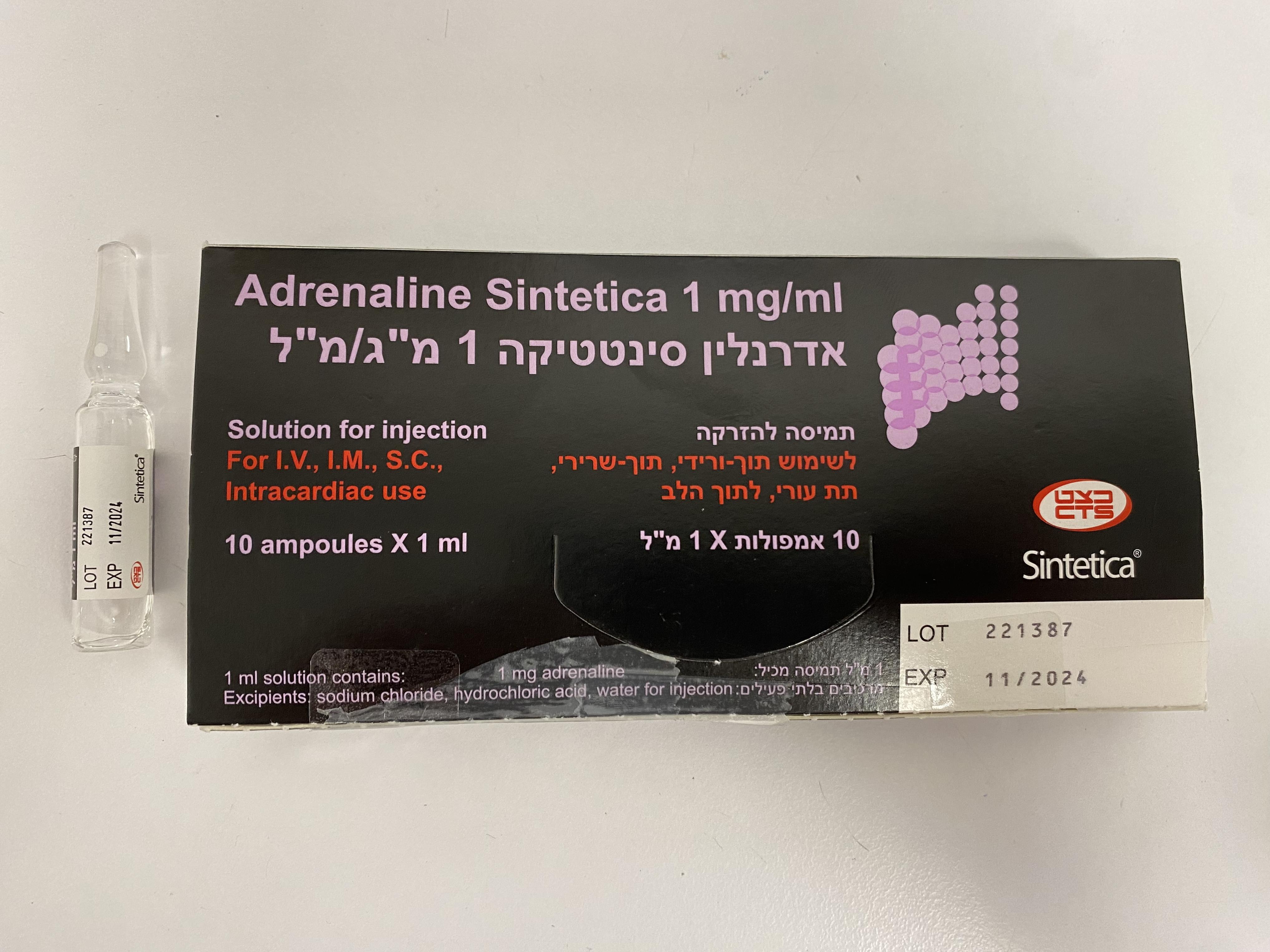Quest for the right Drug

אדרנלין סינטטיקה 1 מ"ג/1 מ"ל ADRENALINE SINTETICA 1 MG/ML (EPINEPHRINE)
תרופה במרשם
תרופה בסל
נרקוטיקה
ציטוטוקסיקה
צורת מתן:
תת-עורי, תוך-שרירי, תוך-ורידי, תוך לבבי : S.C, I.M, I.V, INTRACARDIAC
צורת מינון:
תמיסה להזרקה : SOLUTION FOR INJECTION
עלון לרופא
מינוניםPosology התוויות
Indications תופעות לוואי
Adverse reactions התוויות נגד
Contraindications אינטראקציות
Interactions מינון יתר
Overdose הריון/הנקה
Pregnancy & Lactation אוכלוסיות מיוחדות
Special populations תכונות פרמקולוגיות
Pharmacological properties מידע רוקחי
Pharmaceutical particulars אזהרת שימוש
Special Warning עלון לרופא
Physicians Leaflet
Interactions : אינטראקציות
4.5 Interaction with other medicinal products and other forms of interaction Sympathomimetic agents/ oxytocin: Adrenaline should not be administered concomitantly with oxytocin or other sympathomimetic agents because of the possibility of additive effects and increased toxicity. Alpha-adrenergic blocking agents: Alpha-blockers such as phentolamine antagonise the vasoconstriction and hypertension effects of adrenaline. This effect may be beneficial in adrenaline overdose (see Section 4.9). Beta-adrenergic blocking agents: Severe hypertension and reflex bradycardia may occur with non-cardioselective beta-blocking agents such as propranolol, due to alpha-mediated vasoconstriction. Beta-blockers, especially non-cardioselective agents, also antagonise the cardiac and bronchodilator effects of adrenaline. Patients with severe anaphylaxis who are taking non-cardioselective beta-blockers may not respond to adrenaline treatment. General Anaesthetics: Administration of Adrenaline in patients receiving halogenated hydrocarbon general anaesthetics that increase cardiac irritability and seem to sensitise the myocardium to Adrenaline may result in arrhythmias including ventricular premature contractions, tachycardia or fibrillation (see Section 4.4). Antihypertensive agents: Adrenaline specifically reverses the antihypertensive effects of adrenergic neurone blockers such as guanethidine, with the risk of severe hypertension. Adrenaline increases blood pressure and may antagonise the effects of antihypertensive drugs. Antidepressant agents: Tricyclic antidepressants such as imipramine inhibit reuptake of directly acting sympathomimetic agents, and may potentiate the effect of adrenaline, increasing the risk of development of hypertension and cardiac arrhythmias. Although monoamine oxidase (MAO) is one of the enzymes responsible for Adrenaline metabolism, MAO inhibitors do not markedly potentiate the effects of Adrenaline. Phenothiazines: Phenothiazines block alpha-adrenergic receptors. Adrenaline should not be used to counteract circulatory collapse or hypotension caused by phenothiazines since a reversal of the pressor effects of Adrenaline may result in further lowering of blood pressure. Other drugs: Adrenaline should not be used in patients receiving high dosage of other drugs (e.g. cardiac glycosides) that can sensitise the heart to arrhythmias. Some antihistamines (e.g. diphenhydramine) and thyroid hormones may potentiate the effects of Adrenaline, especially on heart rhythm and rate. Hypokalaemia: The hypokalaemic effect of adrenaline may be potentiated by other drugs that cause potassium loss, including corticosteroids, potassium-depleting diuretics, aminophylline and theophylline. Hyperglycaemia: Adrenaline-induced hyperglycaemia may lead to loss of blood sugar control in diabetics treated with insulin or oral hypoglycaemic agents.

שימוש לפי פנקס קופ''ח כללית 1994
לא צוין
תאריך הכללה מקורי בסל
לא צוין
הגבלות
לא צוין
מידע נוסף
